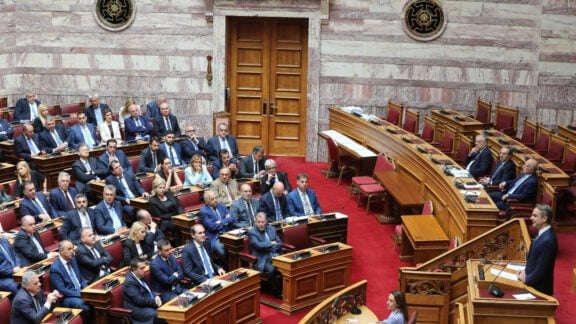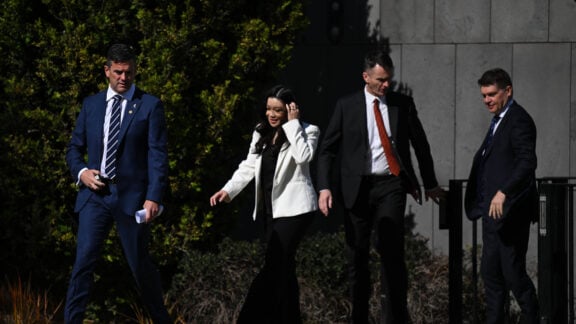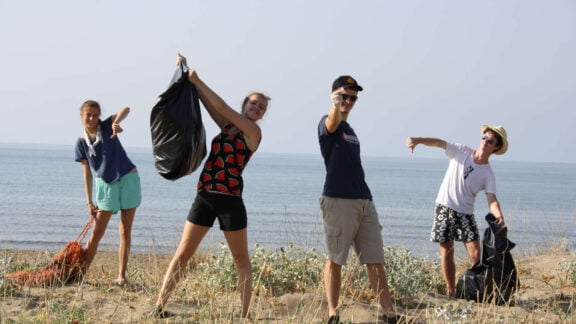Prime Minister George Papandreou last week put up an impassioned defense of his government’s bid to grant second-generation immigrants citizenship, presenting a vision of a country inhabited by Greeks of all ethnic backgrounds and rejecting criticism by saying that Greece’s cultural stability is threatened more by the quality of its television than by migrants.
Papandreou, once a migrant himself and a longtime campaigner for improving foreigners’ rights in Greece, was speaking in Parliament during a debate on a draft law that would allow children born in Greece to immigrant parents who have been living in the country legally for five years to apply for citizenship.
“There are 550,000 immigrants living legally in our country today,” he said. “These people have faces, hopes, dreams and fears.
“They work, pay their social security contributions, buy homes, send their children to Greek schools. They have planted their roots in Greece, which is the only country their children know.
“We cannot allow them not to participate in our society. The refusal to assimilate them… creates inequality and corruption. It sends the message that they are not welcome here.”
Under the government’s proposals, children have to spend at least six years at Greek schools before they are eligible for citizenship.
But the bill has been criticized by New Democracy and the nationalist Popular Orthodox Rally (LAOS) as being too lax.
“We do not want Greece to be an enclosed fortress. But we will never allow it to become a free-for-all as well,” Samaras stressed and added that the social problem from the legal residence of immigrants has already been solved with legislative interventions by ND governments.
Popular Orthodox Rally (LA.OS) president George Karatzaferis reiterated his party’s proposal for the holding of a referendum regarding the granting of Greek nationality to foreigners.
Karatzaferis, whose party asked for the off the agenda debate, also reiterated his strong opposition to the government’s decision on the issue, counter-proposing the granting of long-term residence permits to immigrants.
He also said that the tabling of a relevant bill undermined national unity “at a time when this was an absolute necessity”.
Communist Party of Greece (KKE) Secretary General Aleka Papariga, on her part, said “no” to the bill being brought by the government.
Papariga said that her party cannot adopt a draft law “worse than the more or less problematic previous one” and pointed out that the government may be making “concessions to the New Democracy (ND) and Popular Orthodox Rally (LA.OS) parties in exchange for the consent they showed for the measures against the working people and in favour of the exit from the crisis.”
“Why are there false fears about our nation being altered beyond recognition?” asked Papandreou.
“What does it mean to be Greek? Democracy, equality and humanity. Is this how little we believe in Greece’s strength? Our culture is damaged more by the 4-5 hours a day that we and our children watch TV.”
New Democracy leader Antonis Samaras said his party would repeal the law if it comes to power, arguing that it would spur an influx of more immigrants.
“When we are in the midst of the worst economic crisis Greece has experienced since the war, giving citizenship to half a million immigrants and their children creates the danger of social unrest,” he said.
Papandreou insisted that granting citizenship would not affect immigration. “There are no perfect solutions but there are long-term and better solutions,” he said.
“This gives us a new possibility: to see Greeks of Indian or Albanian descent who are proud of their Greek citizenship.”








